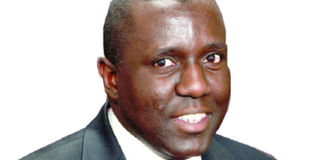How Covid will reframe national consciousness

The Covid-19 newsreel is continuous. First the number of Covid cases is rising in countries which have achieved near threshold but below herd immunity by vaccinating a considerable segment of their populations. The United States after quick gains is stuck around 70 per cent of the population who have received partial or 100 per cent shots.
The Delta variant that has afflicted combs of low income neighbourhoods in urban centres, the southern states and Appalachian regions has brought out a political dimension to Covid. Covid has also struck other less palatable views of the American dream and its demographics including its very high rates of incarceration, the highest per capita confinement rate in the industrial world. The US maintains its entry restrictions on EU nationals.
In Africa, Zimbabwe has maintained a ban on public elections in place since September 2020. As of July 2021, the National Assembly is short of 26 Members of Parliament and Zimbabwe’s vice president in response to pleas that by-elections be held has stated sardonically, “dead people don’t enjoy democracy”. Kenya on the other hand is in the middle of preliminaries in what will be an earth shaking presidential election. Advantage to deputy president William S Ruto, a fixer who grew into a political heavy weight and a feeling by the minority tribes that it is their turn after 20 years of Mt Kenya; and an establishment candidate Raila Odinga, son of Kenya’s first vice president, former prime minister, a populist charismatic figure of old who has thrown in his towel with incumbent Uhuru Kenyatta.
Kenya is also about to start a serious wave of inoculations moving away from Astra Zeneca whose 57 per cent efficacy rate has led to doubts in both the UK and India about its effectiveness. In fact, the UK is already seeing a rise in cases after opening up on July 19. According to the Daily Mail, recent cases dropped from 50,000 cases after the reopening to a still high number of about 30,000 cases and 28 deaths on July 25. Health Secretary Sajid Javid tested positive for Covid. This is mild news after both former US president Donald Trump and British Prime Minister Boris Johnson were hospitalised in 2020 with Covid.
Back home, as the lockdown period comes to an end, key questions remain. Does Uganda have the financial resources to mobilise a mass inoculation to attain herd immunity itself still an elusive goal in the West and reopen the economy. Do the mask/isolation mandates have any realistic chance of containing the third wave of the pandemic starting to unfold in eastern Asia? Can public communal gatherings, especially schools and churches be allowed in any circumstance a decision that will bring the education sector to its knees.
The current lockdown was precipitated by fuzzy reporting, callousness in reopening schools under the honestly but mistaken belief that Covid 19 was less of an issue among younger people until the sick bays filled up and schools began facing fatalities. Like in the UK, newer cases are much younger healthier victims. When schools were closed, infected students returned home and sparked a new wave of infections.
Parliament is trying its best to shed light on the pandemic visiting government health facilities to find the usual; intermittent supplies, lack of drugs but these efforts are likely to end up as window dressing.
Parliament does not have the technical capacity to fully audit the public health system. Maybe they should also visit private health facilities where pay has been cut. Maybe Covid has highlighted a major market failure and may force government to table a comprehensive healthcare law.
The courts already in 2011 ruled that healthcare is a basic right and in the midst of the current wave ruled that government had to bring a law to regulate the cost of private healthcare. A right to healthcare is an extension of the right to life. And yes the healthcare centres are going to have doctors, perform surgeries but all these services must meet occupational and minimum quality of services.
After Covid even the well-heeled will accept that private healthcare has its limits, especially when its unregulated and turns into a monster of its own, price gouging, malpractice, playing on the psychology of desperate families trying to revive lives which at admission are already lost to Covid-19.
Mr Ssemogerere is an Attorney-At-Law and an Advocate.
[email protected]


